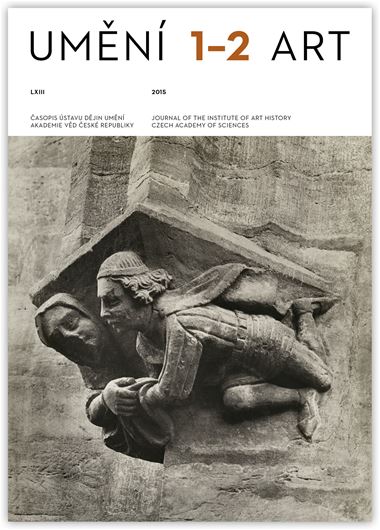Jiří Koukal
Der tote Freund von František Kovárna
After the closure of the universities, František Kovárna, an art and aesthetic theorist and art critic, moved from Prague to Bezmíř, where he in 1943 wrote a book titled Letters to a Dead Friend (Listy mrtvému příteli). In the book he copes with the death of a friend from the past, a German art historian, killed in Russia during the war. The name of Kovárna’s friend is never mentioned in the book as Kovárna was trying in essay form to identify the causes of Nazism against the backdrop of one friendship. Archive materials, however, reveal that Kovárna’s ‘dead friend’ genuinely existed: it was Hans-Adalbert von Stockhausen, whom Kovárna had become friends with when Stockhausen was studying in Prague in 1932 and 1933. The Letters can be read as a work of literature, or as a memoir that captures with relative accuracy the circumstances of Stockhausen’s sojourn in Prague, which was instrumental in determining the area of scholarship he chose to specialise in, as it was in Prague that he found the subject of research that in 1938 earned him his lectureship in the Department of Art History of Marburg University. He had planned to elaborate on his research and publish it in a book on mural painting in the times of Charles IV and Wencelas IV. But this never happened. Czech-German relations quickly deteriorated and Stockhausen was called up for service. When he was killed in August 1942, Kovárna asked himself how could it be that this educated friend of his had voluntarily, rifle in hand, marched into a foreign country, and what had led him to this action. Without knowing the exact circumstances involved, Kovárna sought an answer in the ‘German national character’ and Stockhausen’s family tradition. Family background and the conditions of university work at that time undoubtedly played an important role in shaping the person that Stockhausen eventually became. Like Hans-Adalbert von Stockhausen, František Kovárna also died abroad after being driven out of his homeland by a violent political ideology. After the February coup in 1948 in Czechoslovakia, he went into exile because as a politically active democrat he had just cause to fear for his life.
Full-text in the Digital Library of the Czech Academy of Sciences:
https://kramerius.lib.cas.cz/uuid/uuid:623e8e10-5967-4b19-9ec2-8ec06cad97fd
< back

